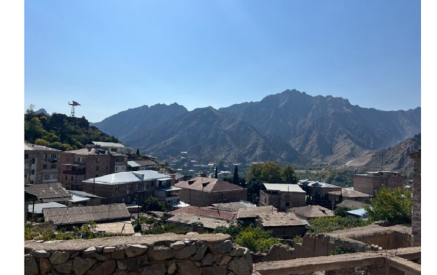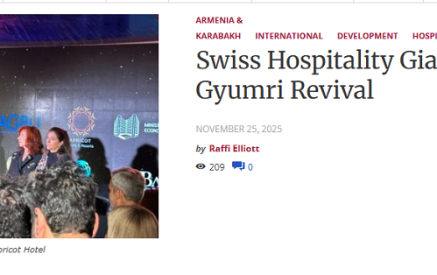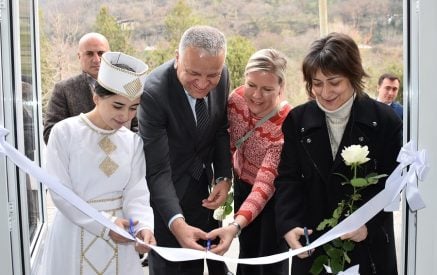ACNIS. Recent developments in Gyumri, Armenia’s second-largest city, can be described as an attempted takeover of the city government—or, in international terms, usurpation. This move appears to be a smokescreen for promoting Pashinyan’s preferred mayoral candidate.
To recap, Gyumri descended into chaos after all 14 members of the ruling Balasanyan Alliance resigned from the city council. This mass resignation came weeks after criminal charges were filed against the former mayor of Gyumri, Samvel Balasanyan, his son, and their associates. The charges involve allegations of fraudulent expropriation of land adjacent to Gyumri’s historic 19th-century Black Fortress. As a result of the alliance’s resignation, the opposition Civil Contract faction gained a plurality in the city council. However, with only 11 mandates, the faction lacks the quorum necessary to convene a meeting or take decisive action.
In short, the current situation leaves Gyumri in a governance crisis, as the lack of sufficient votes in the city council prevents the formation of a functioning municipal government. Consequently, the city remains “headless,” leading to a paralysis in essential municipal services. Nikol Pashinyan has emphasized his specialists’ unanimous claim that resolving Gyumri’s management crisis is impossible without the prime minister appointing an interim leader to oversee the city.
We do not know who advises the individual occupying the position of prime minister, but one thing is certain: Pashinyan will attempt to leverage the current situation to extend his grip on power, which seems to be showing cracks. If even a semblance of democracy remained in Armenia, the country’s leader (when required to replace the political majority in local government structures) would nominate a nonpartisan individual as a temporary candidate for community head, rather than an affiliate or member of the Civil Contract party.
Read also
However, Pashinyan seems intent on prioritizing his personal interests, following a path similar to that of the Armenian National Movement in the early 1990s, guided by the principle: “Let it even be a mop, as long as it’s ours.” What is on Pashinyan’s mind? He has announced plans to hold preliminary votes, or “primaries,” in Gyumri from December 8–10. These so-called primaries, aimed at gauging support, are being used as a strategy to delay official snap elections in Gyumri—likely because the Civil Contract party fears a straightforward loss. The aim is to first assess the party’s chances, gauge public sentiment, and then appoint a temporary official who will serve as their candidate for mayor.
But what is the real purpose of these “primaries”? The prime minister himself addressed this. “At our request, candidates will be nominated or will self-nominate from among the members, affiliates, and sympathizers of the Civil Contract party. These candidates will be registered based on certain political criteria. Following this, we will conduct a vote among Gyumri residents using specific methods, including randomness, and appoint the winning candidate as the acting mayor of Gyumri. This individual will most likely become our candidate in the upcoming mayoral or city council elections,” he explained.
Pashinyan has never hidden his desire to consolidate local self-government bodies under his control. He has been unwilling to accept defeats in local government elections and has sought to secure Civil Contract’s dominance at all costs. Over the past two to three years, elections in numerous communities have ended poorly for the ruling party. Civil Contract suffered defeats in Yerevan, Gyumri, Vanadzor, Berd, Vardenis, Sisian, Vedi, Talin, and dozens of other communities, large and small. Yet, through heavy-handed tactics—arrests, violence, and repeat elections—they have often managed to claw back victories by undermining the integrity of citizens’ votes.
Now, in Gyumri, Pashinyan appears to be testing a new, “softer” approach. If successful, this method will likely be applied to other communities. Securing as many “loyal” local governments as possible would significantly enhance the ruling party’s chances of an unequivocal victory in the upcoming National Assembly elections.
The Armenian Center for National and International Studies




























































